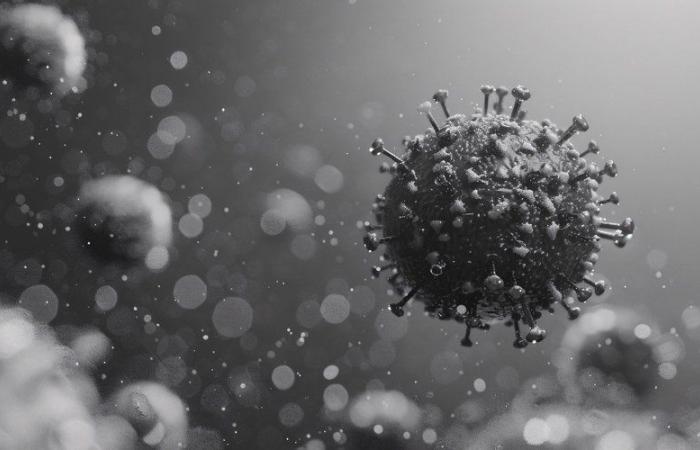
the essential
In a report published this Monday, a commission made up of American elected officials affirms that the hypothesis of a laboratory leak to explain the Covid-19 pandemic was “the most plausible”. The elected officials also return to controversial research which had been carried out in Wuhan.
It's been five years since SARS-CoV-2 – more commonly known as Covid-19 – made itself known to the world. The question has also been on the table for five years: where does this virus come from? Theories on this subject have never been lacking… But recent studies have established two rather clear-cut positions. Last September, an international team of researchers favored the hypothesis of transmission to humans by infected animals introduced into a market in Wuhan (China) at the end of 2019.
Also read:
Covid-19: who is Connor Reed, the Welsh media person who claimed to be patient zero?
This time, it is the idea of a leak from a Chinese laboratory which is now making a comeback. A commission of elected officials in the American Congress, entirely dedicated to the Covid-19 pandemic, published a report this Monday, December 2 affirming that this hypothesis was “the most plausible” to explain the origin of the virus. The document also boasts of a real “consensus” between Republican and Democratic elected officials around this question, thus estimating that “the possibility that Covid-19 emerged from an accident linked to a laboratory or research n “It's not a conspiracy theory.”
Controversial research in China
To support this idea, five arguments are put forward. At the heart of their demonstration, the elected officials affirm that “the virus has a biological characteristic” which is “not present in nature”. The report above all highlights that in 2019, American government institutions specializing in health – and called “National Institutes of Health” – had financed controversial research in China… and more precisely within the Institute of Virology in the city of Wuhan, the birthplace of the virus. In detail, it was a question of studying what we call “gain of functions”: the experiment consists of genetically modifying viruses to make them more transmissible or more virulent…
Also read:
Covid-19: a new study targets the Wuhan market… 5 questions about the origin of the virus
This funding, after two years of denial, the National Institutes of Helath finally recognized it in May 2024. A few months earlier, in July 2023, the United States announced suspending federal funding for the Chinese Institute of Virology from Wuhan. The authorities claimed that the establishment had failed to provide important documents relating to possible violations of biosafety protocols within the laboratory.
“This work will help the United States and the world”
In a report published in June 2023, American intelligence assured that it had no proof that the Covid-19 pandemic was linked to a laboratory leak, however deeming the hypothesis “probable”. The question remains eminently political: China has never stopped pointing the finger at the hypotheses formulated by American intelligence. “This work will help the United States, and the world, predict, prepare for, protect against, and – hopefully – prevent the next pandemic,” said Brad Wenstrup, President. of the commission of elected officials who produced this report.
Also read:
Origin of Covid-19: new team sent to China, pressure… how the WHO will relaunch the investigation
This subcommittee, dedicated to the Covid-19 pandemic, was created in February 2023. The Republicans then regained the majority in the House of Representatives. The 500-page report which was presented this Monday was therefore the fruit of two years of work: 38 depositions and interviews were carried out and some 25 hearings were conducted.





